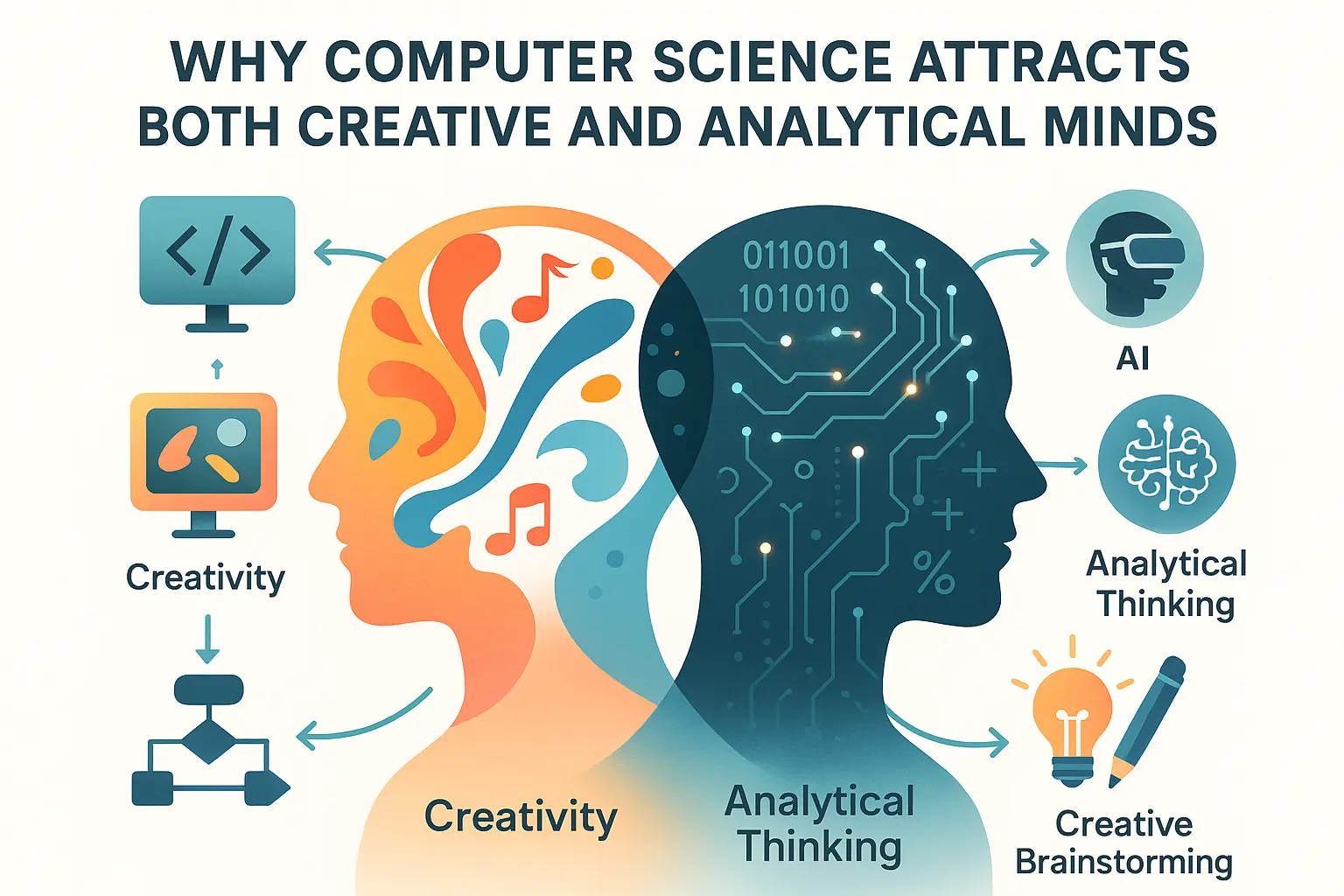The Computer Science Dream: Facing Science Challenges in Computer Science Careers and the Reality of the Dream
Pursuing a computer science career can feel like an exciting journey toward innovation, creativity, and independence, especially for homeschool families seeking alternatives to conventional education paths. However, many aspiring professionals soon encounter unexpected science-driven obstacles, from advanced problem-solving to rapidly evolving technologies. By understanding both the promises and practical realities, parents and students can better prepare for these challenges and craft a more fulfilling, sustainable pathway in computer science. Discover how to navigate this dynamic field and support your child’s ambitions for a future shaped by curiosity and resilience.
Key Highlights
- Computer science appeals to both creative and analytical students, fostering innovation and problem-solving skills in homeschool environments.
- Hands-on projects and personalized learning help homeschoolers overcome rapid changes and challenges in science careers.
- Integrating artificial intelligence early gives students an adaptable edge for emerging technology careers and entrepreneurial opportunities.
- Choosing universities with strong mentorship, research, and student-driven inquiry is vital for aspiring engineers and computer scientists.
- Self-driven science projects build confidence, critical thinking, and practical skills essential for thriving in today’s tech industry.
Why the Computer Science Dream Attracts Creative and Analytical Minds
The dream of a computer science career appeals deeply to both creative spirits and analytical thinkers, offering a unique blend of innovation and logic. For many students, the allure comes from the potential to solve real-world problems and craft transformative solutions across science and engineering fields. Homeschool families, in particular, notice how computer science allows students to blend artistic imagination with technical mastery, paving the way for a lucrative career and meaningful impact. Mentors who understand this intersection nurture skills beyond coding, fostering holistic abilities that empower students. It’s no surprise that the dream of a future shaped by computer science continues to inspire young learners and their families.

Inspiring Middle and High Schoolers: Stories From a Homeschool Mom and Engineer
As both a homeschool mom and an engineer, I’ve watched the computer science dream ignite a passion in students, especially those who have felt boxed in by traditional approaches to science and engineering. My own children, for example, started small coding projects out of sheer curiosity, but soon, their analytical skills and creative flair merged, letting them dream bigger. What began as programming robots turned into building entire apps that solved our everyday household challenges. These experiences didn’t just reinforce computer science knowledge; they nurtured real-world problem-solving and set the stage for a potentially lucrative career.
By working hand-in-hand with mentors and leveraging our flexible homeschool schedule, my students could dive into projects that reflected their interests and unique learning styles. It’s inspiring when you see a student who loves art discover that computer science allows them to animate their vision, or when a detail-oriented child realizes that programming is a way to organize logic in science and engineering. That nurturing environment helps students recognize that the dream is attainable and shapes their skills for future success. Encouraging other parents to seek out resources and mentors can make this journey accessible and enjoyable for every learning style.
Whether your student dreams of artificial intelligence or building the next big app, introducing them early to computer science cultivates both imagination and logic, setting the foundation for a career that’s as rewarding as it is innovative. Let your student’s dream lead the way, backed by a supportive homeschool network and trusted mentors who understand the value of both creative energy and analytical prowess.
Understanding the Core Challenges in Modern Science Careers
Aspiring science engineers and computer science students are stepping into a world of fast-evolving expectations and competitive job markets. With the promise of fulfilling programs and the allure of high-impact careers, families following non-traditional educational paths often face unique hurdles. Understanding the root challenges, from rapidly changing science and computer fields to intermittent access to updated research, can help parents and students make informed choices. Shifts in educational standards, job requirements, and the very nature of science itself continue to redefine what it takes to succeed. Exploring these realities is the first step in preparing to thrive in modern science and computer science careers.
How Shifting Educational Expectations Impact Aspiring Young Innovators
The education landscape for science and computer fields isn’t what it used to be, especially for students hoping for a meaningful career in these areas. As a homeschool mom and engineer, I constantly see how today’s programs challenge students to go beyond rote memorization and into practical, research-driven learning. Schools and online courses are raising the bar, emphasizing problem-solving, collaboration, and adaptation in real-world science environments. For homeschool families, this means seeking out programs that truly prepare young innovators for the expectations awaiting them in university and the global job market.
There’s a widening gap between traditional learning approaches and the competencies required for science engineers and computer science professionals today. Employers look for students who’ve had hands-on research experiences, not just those who understand theory. Homeschool programs can address this challenge by offering project-based opportunities that promote independent thinking and encourage students to apply science and computer concepts to realistic situations. But even with such resources, students may feel pressure as job qualifications evolve and competition intensifies. For aspiring young innovators, understanding current expectations isn’t just helpful; it’s essential for navigating shifting requirements, ensuring that every science or engineering challenge becomes a springboard for growth. As parents, we must keep up with these changes to help guide our students toward programs that bridge the gap between academic preparation and meaningful science careers. Whether your child is crafting their first computer program or participating in a cutting-edge research project, nurturing a responsive and resilient mindset is key to helping them thrive in a dynamic job landscape.
Navigating the Role of Artificial Intelligence in Computer Science Pathways
As families navigate the ever-evolving world of computer science, artificial intelligence is reshaping what it means to prepare for a tech-driven future. From my perspective as a homeschool mom and engineer, I view AI not as a stand-alone teacher, but as a powerful learning partner, one that still requires human oversight, thoughtful questioning, and healthy skepticism. While it can open doors to concepts like machine learning or neural networks earlier than ever, our kids must learn to think critically about the information they receive and the tools they use. Technology will keep changing; the ability to reason, question, and evaluate will never go out of style.
In our home, AI has been a springboard for creativity and curiosity. My kids have created a program for their Roblox game, analyzed data sets, and experimented with image generation prompts, always with the understanding that AI can make mistakes, and it’s our job to verify, refine, and improve the outcomes. These projects aren’t just about mastering a tool; they’re about developing problem-solving skills, adaptability, and the discernment to separate reliable results from flawed ones.
For parents frustrated by rigid classroom curricula, weaving AI into a homeschool framework offers the freedom to blend cutting-edge tech with timeless skills like logic, ethics, and communication. Encourage your students to explore AI as a way to enhance their learning, not replace it. Let them use programming tools to discover their interests, but keep the focus on how they think, not just what they can make a computer do. By integrating these concepts early, you’re not only preparing young learners for the next generation of computing roles, you’re helping them become thoughtful, adaptable innovators who can thrive in a rapidly shifting world.
The Impact of University Choices on Engineering Aspirations
Choosing the right university isn’t just about prestige; for homeschool families and students passionate about science, engineering, and computing, it’s about finding a place that encourages exploration and critical thinking. The landscape has evolved; universities now shape how students nurture their dreams, whether in computer science, engineering, or other high-level programs. Navigating these choices is crucial because the right program unlocks opportunities for innovative research, hands-on experiences, and meaningful mentorship. When parents empower students to seek environments that value curiosity and independent learning, students are more likely to realize their dream program and master the skills that today’s science and computing fields demand.
Tips for Parents: Selecting Programs That Nurture Independent Thinkers
As a homeschool mom and engineer guiding my own children toward university and careers in computer science and engineering, I’ve learned that program choice can transform a student’s journey. Programs deeply rooted in research and hands-on computing opportunities foster true independence. Begin by seeking out universities where students are encouraged to ask questions, participate in research projects, and connect with mentors, experiences that have always benefited my own children. Beyond high rankings, look for science and computer science departments that celebrate student-driven inquiry, and where engineering students are empowered to explore big, real-world challenges from day one.
If your student dreams of joining a master program or excelling in their chosen science or computer field, prioritize universities where mentors are accessible and genuinely invested in helping students grow. Programs offering early access to research labs, peer-led computing initiatives, and strong connections with industry partners ensure students don’t just memorize theory, they live it. Engage with current students and faculty, ask about opportunities for individual research and how the program helps develop leadership or entrepreneurial skills. Attending virtual open houses or campus tours with your child can spotlight environments where individual growth, not just academic performance, is celebrated.
Small groups and collaborative workshops can be especially valuable for homeschooled students who’ve thrived in self-directed settings. Encourage your student to find programs that match the spirit of their homeschool experience: flexibility, deep engagement, and a personalized approach to tackling science and computer challenges. The right university and program will not only help your child master technical skills but will also nurture lifelong curiosity and courage to innovate. This makes all the difference for aspiring engineers and computer scientists eager to turn their dreams into reality. Start exploring options early, trust your student’s instincts, and always emphasize programs that build confidence in independent thinking. If you’re ready for the next step, make your list of dream programs and start your journey together toward a future where your child can thrive as both a learner and a creator.
Empowering Self-Driven Learning Through Science Projects and Research
Equipping your student with the freedom to pursue self-driven learning is one of the most powerful gifts a homeschool parent can offer, especially in computer science. From personal experience as a homeschool mom and engineer, I’ve found that authentic engagement in science starts when students have ownership over their research and the projects they pursue. Instead of simply following a scripted curriculum, encourage your child to identify problems or areas of curiosity, maybe they want to automate a household task, build a simple computer program, or even participate in collaborative computing research.
The beauty of homeschooling is the flexibility to tap into research opportunities that align with your child’s interests and strengths. Many online platforms and organizations provide access to real-world science and computer science projects, allowing middle and high schoolers to connect with professionals and peers who share their passions. Help your student explore computing research competitions or citizen science challenges, which foster not only hands-on technical skills but also critical thinking and resilience.
Empowering your child doesn’t just build confidence, it instills lifelong learning habits that are vital in science and computer science careers. Let your student experiment, reach out for mentorship, or join a virtual research group to boost both their portfolio and problem-solving skills. If you’re seeking new ways to fuel your child’s ambition, start by introducing them to local or online research opportunities. Not only will this strengthen their self-driven mindset, but it will also prepare them for the demands of college programs and the realities of the tech industry. Invest in these experiences now, and you’ll see your budding innovator develop into a confident, capable contributor in computing research and beyond.
Pursuing a computer science career brings both excitement and real challenges, especially for families seeking meaningful alternatives to traditional education. As a homeschooling parent, I’ve seen firsthand how dedicated guidance, adaptable learning, and resilience can help students transform obstacles into opportunities. By embracing hands-on projects, mentorship, and a flexible curriculum, you empower your students’ tech journey. If you need any help trying to figure out what projects or tools to use, send me a message!




